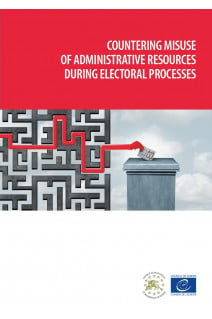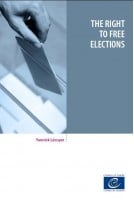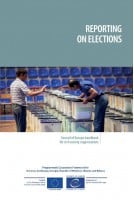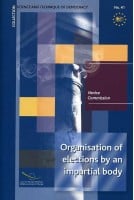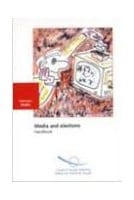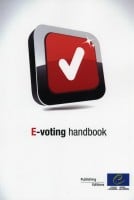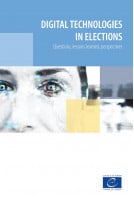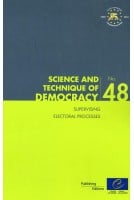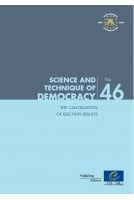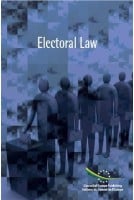Democracy requires that the law develops to identify, detect and take enforcement action against the misuse of administrative resources in the electoral process.
A competitive, fair and healthy electoral environment is crucial at every stage of the electoral cycle. However, it has utmost importance during the electoral period, including campaigns, as well as on election day. The line between a state and a ruling party is very fragile and can sometimes be blurred even in recognised democracies, which detracts from other improvements in electoral practices. The abuse of public administrative resources damages the democratic development of states and leads to citizens’ frustration with elections and their results.
The toolkit “Countering the misuse of administrative resources during electoral processes” was developed as methodological guidelines for the Council of Europe member states to introduce effective mechanisms for preventing the abuse of public administrative resources and responding to violations in a timely and efficient manner. The toolkit was designed in co-operation with the Venice Commission and is based on the Council of Europe’s acquis and the case law of the European Court of Human Rights. This publication proposes an overview of international standards and good practices, case studies and practical examples, empowering electoral stakeholders with necessary instruments for countering the misuse of administrative resources during electoral processes. The toolkit presents interesting comparative analysis of examples from Latvia, Georgia, Ukraine, the Republic of Moldova and other Council of Europe member states. The authors propose recommendations and practical solutions, as well as complex measures that are already in place and have changed electoral practices for the better. The methodological guidelines also include codes of conduct, training materials and concepts of e-learning courses in the field aimed at raising awareness of electoral stakeholders of the necessity of ensuring a fair and competitive electoral environment.
The toolkit is primarily for electoral officials and public servants, but it can also serve as a road map for other electoral stakeholders.
EUROPEAN COMMISSION FOR DEMOCRACY THROUGH LAW DIVISION OF ELECTIONS AND CIVIL SOCIETY (DIRECTORATE GENERAL DEMOCRACY) INTRODUCTION
International instruments aimed at preventing and countering misuse of administrative resources during electoral processes
Conclusion
GOOD PRACTICES FOR COUNTERING THE MISUSE OF ADMINISTRATIVE RESOURCES FOR ELECTORAL PURPOSES AMONG COUNCIL OF EUROPE MEMBERS
Historical backgrounds
Constitutional principles
Practical considerations
1. General prohibition of administrative resources during electoral campaigns
2. A targeted approach
3. A pragmatic approach to the assessment of administrative resources
4. Supervision
PREVENTION OF MISUSE OF ADMINISTRATIVE RESOURCES DURING ELECTORAL PROCESSES IN GEORGIA AND PRACTICAL EXAMPLES OF ABUSE OF ADMINISTRATIVE RESOURCES
Introduction
Legal bases for the prevention of misuse of administrative resources
Audit of the use of finances and administrative resources of election subjects
Types of relatively frequently used administrative resources and practical examples of their misuse
Importance of political will to avoid misuse of administrative resources and intimidation of voters
Election-related awareness raising and information campaigns
COMBATING MISUSE OF ADMINISTRATIVE RESOURCES IN THE ELECTORAL PROCESS: CASE STUDY FROM UKRAINE
Introduction
Misuse of legislative powers
Frequent changes in electoral legislation
Impact on legislation quality
Legislative inaction
Misuse of power and lobbying of party interests
Organisation of election procedures
Limitations on campaigning
Legal liability
Conclusions
COUNTERING THE MISUSE OF ADMINISTRATIVE RESOURCES: EFFECTIVE ENFORCEMENT MECHANISMS AND PRACTICAL EXAMPLES IN LATVIA
Introduction and background
Supervision and control of the requirements of the pre-election campaign law
Practice of monitoring the use of administrative resources
Conclusion
Bibliography
CASE LAW OF THE EUROPEAN COURT OF HUMAN RIGHTS WITH A PARTICULAR EMPHASIS ON MISUSE OF ADMINISTRATIVE RESOURCES
Introduction
General overview of Article 3 of Protocol No. 1
Misuse of administrative resources in elections
Administrative resources and elections: interrelation with other Convention provisions
Conclusion
APPENDIX I APPENDIX II APPENDIX III APPENDIX IV – DECLARATION OF CONDUCT (MOLDOVA) APPENDIX V – MANUAL FOR PREVENTING AND RESPONDING TO THE MISUSE OF ADMINISTRATIVE RESOURCES DURING ELECTORAL PROCESSES (MOLDOVA)
